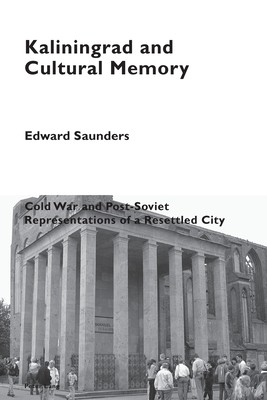
- We will send in 10–14 business days.
- Publisher: Peter Lang Ltd, International Academic Publishers
- Year: 2019
- Pages: 312
- ISBN-10: 1787072746
- ISBN-13: 9781787072749
- Format: 15 x 22.4 x 1.8 cm, softcover
- Language: English
- SAVE -10% with code: EXTRA
Kaliningrad and Cultural Memory (e-book) (used book) | bookbook.eu
Reviews
Description
In 1945, the Soviet Union annexed the East Prussian city of Königsberg, later renaming it Kaliningrad. Left in ruins by the war, the home of Immanuel Kant became a Russian city, a source of historical and cultural fascination for settlers, former inhabitants, visitors and observers alike. New settlers replaced the German population in the years that followed. This book looks at three aspects of Kaliningrad's relationship to the memory of Königsberg through cultural and literary sources and visual representations. First, it addresses the symbolism of Königsberg as a memory site in German culture and nostalgia for the city after 1945. Second, it discusses imagined and satirical literary-cultural adaptations and deconstructions of the idea of «Kant and Königsberg» during the Cold War and afterwards. Third, it explores and reflects on discourses of memory, history and nostalgia in representations of the city by poets, photographers and filmmakers visiting Kaliningrad from the 1960s onwards. The book provides an introduction to the memory debates relating to Königsberg-Kaliningrad, as well as new critical readings of literary texts, films and photographic works.
EXTRA 10 % discount with code: EXTRA
The promotion ends in 20d.07:51:18
The discount code is valid when purchasing from 10 €. Discounts do not stack.
- Publisher: Peter Lang Ltd, International Academic Publishers
- Year: 2019
- Pages: 312
- ISBN-10: 1787072746
- ISBN-13: 9781787072749
- Format: 15 x 22.4 x 1.8 cm, softcover
- Language: English English
In 1945, the Soviet Union annexed the East Prussian city of Königsberg, later renaming it Kaliningrad. Left in ruins by the war, the home of Immanuel Kant became a Russian city, a source of historical and cultural fascination for settlers, former inhabitants, visitors and observers alike. New settlers replaced the German population in the years that followed. This book looks at three aspects of Kaliningrad's relationship to the memory of Königsberg through cultural and literary sources and visual representations. First, it addresses the symbolism of Königsberg as a memory site in German culture and nostalgia for the city after 1945. Second, it discusses imagined and satirical literary-cultural adaptations and deconstructions of the idea of «Kant and Königsberg» during the Cold War and afterwards. Third, it explores and reflects on discourses of memory, history and nostalgia in representations of the city by poets, photographers and filmmakers visiting Kaliningrad from the 1960s onwards. The book provides an introduction to the memory debates relating to Königsberg-Kaliningrad, as well as new critical readings of literary texts, films and photographic works.


Reviews